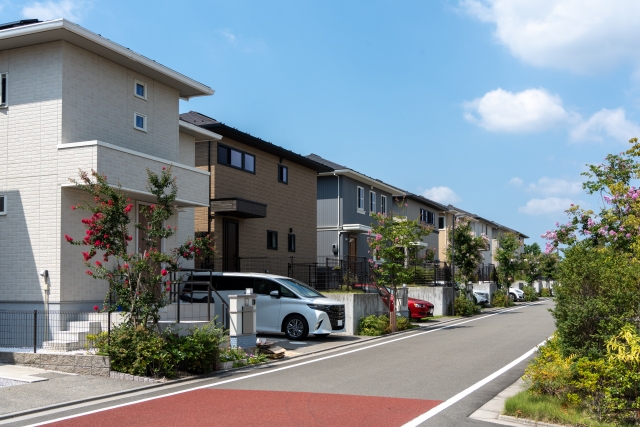Hi, I am Takeshi Hirano, the REDS agent.
Japan is known for its rich culture, advanced technology, and unique lifestyle, making it an attractive destination for many foreigners looking to invest in real estate. While the process may seem complex, understanding the steps involved can simplify your journey. The REDS agent will provide a detailed overview of how foreigners can navigate the Japanese real estate market successfully.
1. Understanding the Japanese Real Estate Market
Before purchasing property in Japan, it is vital to familiarize yourself with the local real estate market. Japan offers a wide variety of properties, from traditional homes to modern apartments. Key aspects to consider include:
- Market Trends: Study recent market trends in your preferred area, including property prices, demand, and future development plans.
- Types of Properties: Understand the different types of properties available, such as condominiums (mansions), detached houses, and land plots.
- Local Regulations: Familiarize yourself with local regulations and property laws, as they can vary significantly by region.
2. Defining Your Goals
Before proceeding, define your objectives for purchasing real estate in Japan. Are you looking for a vacation home, a rental property, or a permanent residence? Knowing your goals will help you narrow down your options and make informed decisions.
3. Setting a Budget
Creating a budget is a crucial step in the purchasing process. Your budget should encompass:
- Purchase Price: The price of the property itself.
- Additional Costs: Include property taxes, registration fees, real estate agent commissions (usually around 3% of the property price), and maintenance costs.
- Financing: If you require a mortgage, research financing options available to foreigners. While some banks offer mortgages to non-residents, requirements may differ, including down payment percentages and interest rates.
4. Engaging a Real Estate Agent
A knowledgeable real estate agent can be an invaluable resource throughout the purchasing process. When selecting an agent, look for:
- Experience: Choose an agent experienced in working with foreign buyers who can communicate in English.
- Local Knowledge: An agent with in-depth knowledge of the local market can provide insights into neighborhoods and property values.
- Services Offered: Confirm the services they provide, including property search assistance, negotiation, and support during the transaction.

5. Searching for Properties
Once you have set your budget and engaged an agent, you can start searching for properties. This process typically involves:
- Online Research: Utilize real estate websites that cater to foreigners, such as Suumo, Homes, and GaijinPot.
- Property Viewings: Schedule viewings for shortlisted properties. This allows you to assess the condition of the property, its location, and nearby amenities.
6. Conducting Due Diligence
Once you find a property of interest, conduct thorough due diligence to ensure you are making a sound investment. This includes:
- Title Check: Verify the property’s title to ensure it is free from encumbrances, liens, or legal issues.
- Property Inspection: Hire a professional to conduct a property inspection to identify any hidden defects or necessary repairs.
- Local Regulations: Check zoning laws and building regulations to ensure your intended use for the property is permitted.
7. Making an Offer
After completing your due diligence and being satisfied with the property, you can make a formal offer. Your agent will help you draft an offer letter, which typically includes:
- Purchase Price: The amount you are willing to pay for the property.
- Deposit: A deposit (usually 5-10% of the purchase price) is often required to demonstrate your seriousness.
- Contingencies: Outline any conditions that must be met before the sale can be finalized (e.g., successful property inspections).
8. Signing the Sales Contract
Once your offer is accepted, both parties will sign a sales contract. This contract is a legally binding agreement and should include:
- Detailed Property Description: A comprehensive description of the property being sold.
- Payment Terms: Outline the payment schedule and methods.
- Closing Date: Specify the date when the transaction will be finalized and ownership transferred.

9. Payment and Transfer of Ownership
After signing the contract, you will need to complete the payment process. This typically involves:
- Bank Transfer: Transfer the remaining balance of the purchase price to the seller’s designated bank account.
- Judicial Scrivener: Engage a judicial scrivener (shihoushoshi) to handle the legal aspects of the transaction. They will facilitate the transfer of ownership and ensure all documents are properly filed.
10. Registration of Ownership
Following the payment, you must register the property in your name at the local Legal Affairs Bureau. This process includes:
- Application: Submit an application for registration, including the signed sales contract and other required documents.
- Fees: Pay the registration fee, which is typically based on the property value.
- New Title: Once processed, you will receive a new title deed in your name, officially confirming your ownership.
11. Post-Purchase Considerations
After successfully purchasing a property, consider the following:
- Property Management: If you plan to rent out the property, consider hiring a property management company to handle tenant relations and maintenance.
- Insurance: Obtain property insurance to protect against potential damages or losses.
- Tax Obligations: Familiarize yourself with local property taxes and regulations, including annual taxes and reporting requirements.
12. Cultural Considerations
Understanding Japanese culture can enhance your experience as a property owner. Respect for community rules, customs, and neighborly relations is vital in Japan. Engaging positively with your community can lead to a more fulfilling experience as a property owner.

Conclusion
Purchasing real estate in Japan as a foreigner can be a rewarding venture. By following this comprehensive guide, you can navigate the complexities of the Japanese real estate market with confidence. With thorough research, professional support, and careful planning, you can successfully find and purchase your dream property in Japan, opening the door to a vibrant culture and unique lifestyle.
If you would like to find properties in Tokyo Metropolitan area, please feel free to contact us to the following e-mail address at any time.
【REDS】Real Estate Distribution System (REDS) Japan
Takeshi Hirano (Mr.)
mailto: ta.hirano@red-sys.jp


コメント